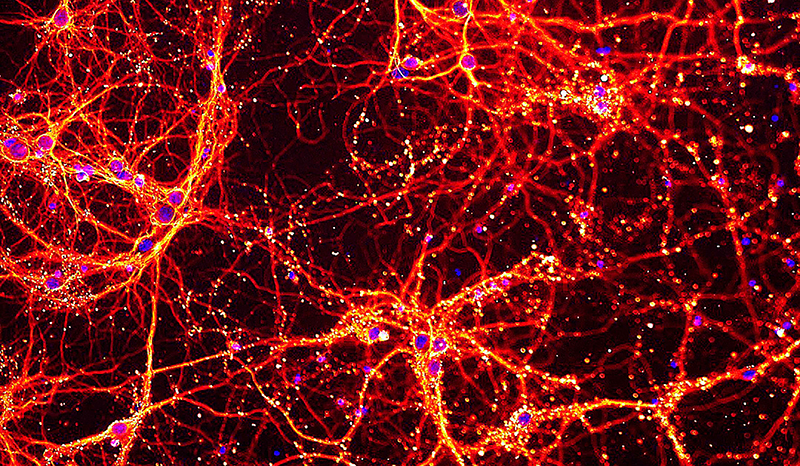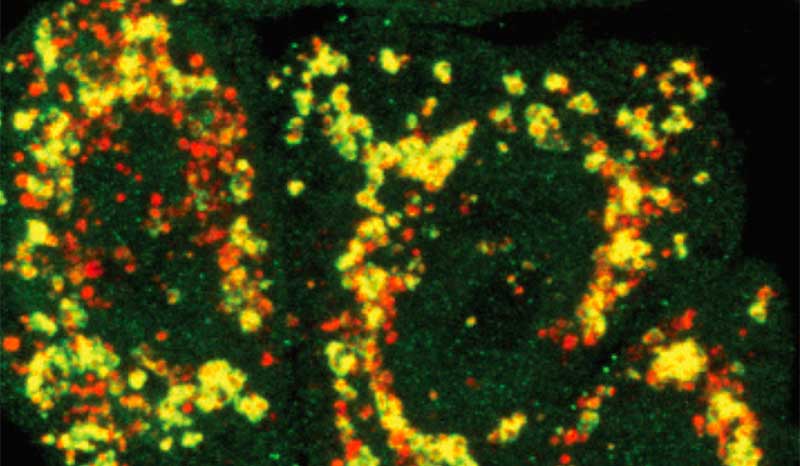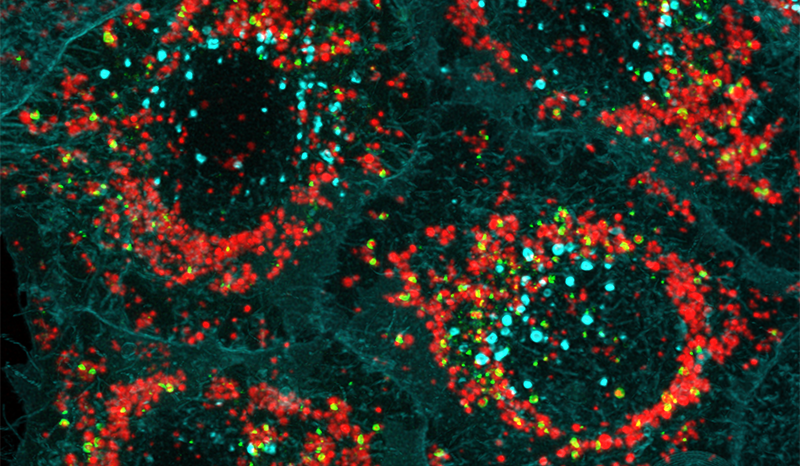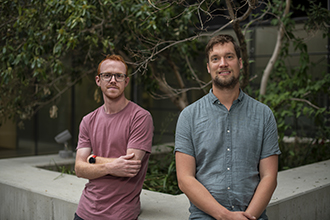Ubiquitin is a small protein found in all human tissues. Ubiquitin can bind to and modify other proteins in a variety of ways, generating a multitude of distinct signals that have important consequences for the protein being modified, such as:
- Destruction of the protein
- Transporting the protein to a different place in the cell
- Generating new interactions with proteins
Ubiquitin signals play a significant role in many biological processes. Deregulated or dysfunctional ubiquitin signalling can lead to diseases such as cancer, inflammatory conditions and neurodegenerative diseases.
Because of its strong disease associations, ubiquitin signalling presents a large, untapped opportunity for generating new medicines for conditions such as Parkinson’s disease.
Our division is working to understand the underlying biology of ubiquitin-mediated processes in cells, with a particular focus on those associated with human diseases.
A major aim is to enable translation of our ubiquitin research into the clinic, by identifying and validating new targets, and associated small molecule probes to generate new drugs.
To contact the division please email Aimee Scott, Division Coordinator, at scott.a@wehi.edu.au.














